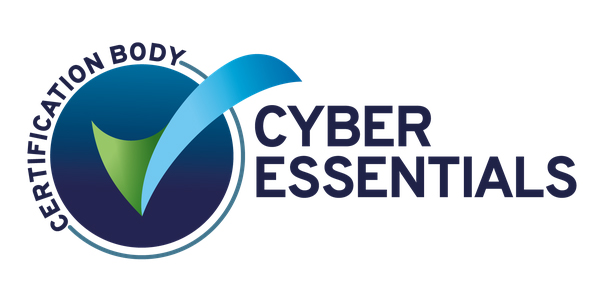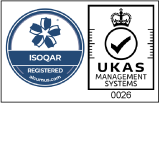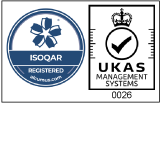Modern companies are under more pressure than ever to consider the environmental impact of their activities — and it’s not hard to understand why.
Despite efforts to minimise greenhouse gas emissions, global temperatures will likely reach record highs in the next five years, according to a recent update by the World Meteorological Organization.
Experts predict these high temperatures will have far-reaching impacts on people and the environment, leading governments and organisations worldwide to place sustainability at the top of their agendas.
Fortunately, there’s one factor helping to drive sustainability policies across industries: the rapid evolution of business technology.
Thanks to the increasing availability of artificial intelligence (AI), the Internet of Things (IoT) and other advanced technologies, more companies can take simple steps to bolster their environmental, social and corporate governance (ESG) efforts — benefitting their operations, vulnerable communities and society at large.
So, what do some of these solutions look like — and how could they help boost sustainability within your business?
1. Efficient utilities
One of the first places businesses can make sustainability improvements is in their offices.
A whopping 40% of global carbon emissions related to energy usage come from the built environment, with 27% of these emissions attributed to daily operations. As such, keeping energy consumption low is vital within commercial spaces — something technology is helping many businesses stick to.
For example, as state-of-the-art office software and equipment become more accessible, upgrading outdated, power-hungry hardware like desktops and printers can significantly reduce energy use within your offices.
Plus, by installing smart meters and sensors powered by IoT, business leaders can better manage carbon emissions and automate building controls to reduce energy waste — and save money, too!
2. Optimised supply chains
If your organisation is serious about reducing its environmental impact, you’ll also need to look at the sustainability of your supply chain.
Whether you sell goods or purchase products from suppliers, every item carries the weight of a carbon footprint — and minimising this where possible is crucial to mitigating climate change. However, an EY survey of over 500 executives found that nearly half struggle to measure their progress in this area.
That’s where Industry 4.0 technology comes in. Blockchain (shared digital databases or ledgers of transactions and assets), AI and the IoT are all championed as solutions to improving supply chain management by supporting advanced data analytics.
With the insights these technologies can provide, your company can more easily determine the most eco-friendly transport routes and suppliers — helping you make a dent in your overall emissions.
3. Digital documentation
Did you know that according to The World Counts, 50% of business waste is attributed to paper?
Believe it or not, discarded paper makes up a massive proportion of the waste in UK landfills, and offices are a major contributor — with one employee using around 10,000 sheets every year on average. And considering most of this ends up in the bin, moving to a paperless system is a no-brainer…
Now that more businesses are embracing digitalisation, it’s easier than ever to switch — with public and hybrid cloud solutions providing fast, reliable and secure platforms for file sharing and data storage that make paper-based systems almost redundant.
Plus, some business IT providers also offer managed print services, supplying energy-efficient printing equipment and controlling network access to ensure only authorised documents go for print to minimise unnecessary waste.
4. Cloud computing
Though many companies are embarking on digital transformations, many still host their own data storage hardware onsite.
But on-premises servers aren’t environmentally friendly, requiring a constant power supply and temperature maintenance that can quickly ramp up your energy consumption — not to mention your operating expenses.
Alternatively, with a cloud-based IT infrastructure, you can minimise your need for bulky on-premises machinery and store business-critical information offsite in a high-security data centre that’s monitored around the clock.
According to Microsoft, migrating to a cloud-based system like Azure can be up to 93% more energy efficient and up to 98% more carbon efficient than on-premises solutions. But how?
Public cloud providers like Microsoft maintain their servers in temperature-controlled environments, cooling equipment more effectively than in office settings where fan systems need to work in overdrive to create the right conditions.
Plus, third-party providers are better equipped to keep the most efficient hardware in optimal working condition — a task that’d prove challenging for smaller companies with limited resources.
5. Remote communications
Many workers want the flexibility to work whenever and wherever they choose — especially after the pandemic, which led many companies to introduce hybrid and remote working policies in line with changing employee expectations.
But staff satisfaction isn’t the only benefit of flexible working. Providing the digital tools and infrastructure for people to work from home has also had many business sustainability benefits —reducing the need for pollution-generating commutes, large office spaces, international meetings and more.
For example, with the latest video conferencing technology and cloud-based telephony systems, your distributed teams can collaborate securely and remain productive wherever they are. As a result, you can reduce the need for inefficient on-premises hardware, cut emission-generating business trips and decrease the number of workstations you need to power.
With mainstream 5G wireless connectivity just around the corner, these enhanced business connectivity solutions will only get faster and more accessible, making switching to a more energy-efficient IT system more straightforward.
So, if you haven’t already embraced some form of remote communications, now might be the time to start…
At TMT, we’re passionate about helping our customers use technology to their advantage, offering tailored managed IT, cyber security and communications solutions for SMEs. Keen to learn more? Call 0800 988 2002 or email sales@tmtech.co.uk to speak to our friendly specialists today!







